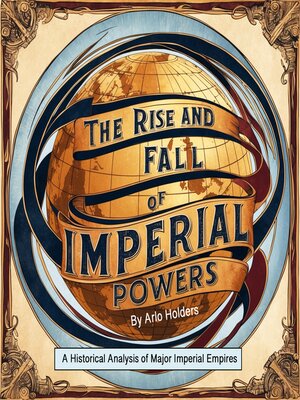The Rise and Fall of Imperial Powers
audiobook (Unabridged) ∣ A Historical Analysis of Major Imperial Empires
By Arlo Holders

Sign up to save your library
With an OverDrive account, you can save your favorite libraries for at-a-glance information about availability. Find out more about OverDrive accounts.
Find this title in Libby, the library reading app by OverDrive.



Search for a digital library with this title
Title found at these libraries:
| Library Name | Distance |
|---|---|
| Loading... |
Imperialism has shaped the course of world history, influencing politics, economics, culture, and warfare across centuries. At its core, imperialism refers to the policy or ideology by which a state extends its rule over other territories, often through military conquest, economic dominance, or political influence. Empires have risen and fallen throughout history, leaving behind legacies that continue to shape modern societies. This chapter explores the fundamental characteristics of imperialism, its driving forces, and its historical significance.
An empire typically consists of a dominant power that exerts control over vast regions, governing diverse populations with varying degrees of autonomy. While military conquest has historically been a primary means of expansion, economic incentives and ideological justifications have also played crucial roles in the formation of empires. The pursuit of wealth, resources, and trade routes has often motivated imperial ambitions, as seen in the European colonial empires that sought to control lucrative markets across the world. Political and strategic concerns, such as securing borders or maintaining dominance over rivals, have further fueled imperial expansion.
Cultural and ideological factors have also been significant in the spread of empires. Many imperial powers have justified their expansion by claiming to bring civilization, religion, or superior governance to the territories they conquered. The Roman Empire, for example, promoted the spread of Roman law and culture as a means of integrating conquered peoples. Similarly, European colonial empires often framed their dominance as a "civilizing mission," using religion and education as tools to reshape local societies. However, such justifications often masked exploitative economic and political systems that benefited the ruling powers at the expense of the subjugated populations.







